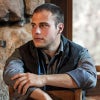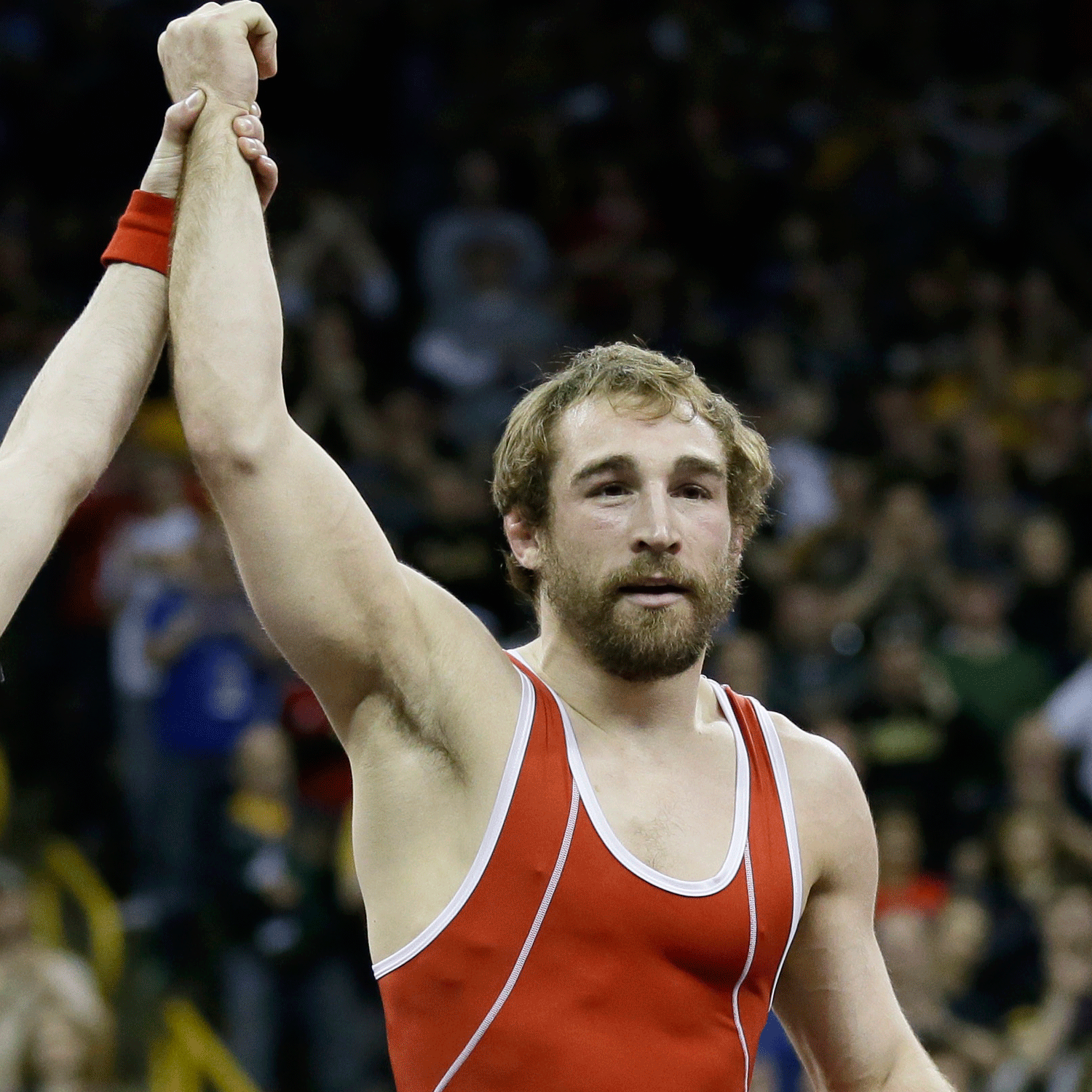There’s a good chance that after the Olympics end, freestyle wrestler Dan Dennis will head home from Rio and spend some time climbing the red cliffs around Moab, Utah. Three years ago, his college wrestling career complete, Moab was where Dennis gathered himself and ultimately decided to return to competition following a six-month hiatus from the sport. On Friday, he’ll wrestle against Vladimir Dubov of Bulgaria in the round of 16, and his prospects are looking bright.
“I’m feeling good, like I can beat anybody,” Dennis . “I’m ready now to wrestle anybody, absolutely anybody, in the world.”
Dennis, who is 29 and grew up in Illinois, secured a spot on the U.S. Olympic Team this past April, after coming to the trials as an underdog. Even for a wrestler, he is uncommonly rugged-looking. Standing five foot five inches tall and rangy, with the build of a bantam Tarzan, Dennis has grown a beard since graduating in 2010 from the University of Iowa, where he was a two-time All-American. He often wears a pair of wraparound sunglasses on his forehead, giving him the appearance of a bike mechanic or climbing guide on his day off. The outdoors are part of Dennis’ identity, and might offer a few clues as to how he managed to revive a career that once seemed close to finished.
“Just because he’s out climbing rocks in California doesn’t mean he’s away from the sport,” says Terry Brands, Dennis’ coach at the University of Iowa. “But it takes some time. You step away so that your body and mind can catch up with each other. From an elite-level mentality, sometimes the best have to go through that.”
“Just because he’s out climbing rocks in California doesn’t mean he’s away from the sport.”
Some fans lose their composure when describing Dennis’ final college match at the 2010 NCAA Championships in Omaha. Wrestling against Jayson Ness of Minnesota, who had beaten him in the regular season, Dennis all but somersaulted his way out of a takedown in the first period and maintained a 4-2 lead going into the end of the match. But with fewer than 15 seconds to go, Ness moved from an unfinished leg attack to a bear hug, not only scoring a takedown (two points) but also putting Dennis on his back (two more points) for the win. Wild cheers from the stands were audible on ESPN, where Dennis could be seen planting his head in his palms before getting up to shake hands with Ness, who then leaped into the stands to embrace his family while Dennis and his coaches shuffled out of sight.
“In my mind, I was done with competition,” Dennis says of the days that followed the tournament, much of which is now a blur. “I knew that as much as anybody ever could know.”
Dennis graduated that spring. Over the next two years, he did odd jobs for a friend’s hunting outfit in Wyoming, coached at summer wrestling camps, and worked at a gas station and for a roofing company. Eventually, he landed an assistant coaching gig at a high school in Windsor, California. In all this time, climbing remained a part of his life. Although gripping and sliding up a rock wall called on a physical wiliness and adaptability that was natural to Dennis as a wrestler, there was nobody to struggle with or outmaneuver. The solitude and the lack of mutual spectatorship held a lot of the charm.
“Sometimes I might catch myself at the gym seeing a good climber and trying to outdo him,” Dennis says. “I have to remind myself to not do that. I don’t want climbing to be competitive. I’m competitive enough already.”
After fixing the brakes on a 1986 Ford F-150, noting that the front seat was just big enough to sleep in, Dennis spent six months of 2013 riding bikes and climbing rocks in Colorado, Wyoming, and Idaho. His brother turned him on to desert towers in Utah. Dennis eventually tried out Indian Creek and Castleton Tower, working his grip on the slick spots of calcite that run along the four-pitch Kor-Ingalls route. During the three years after school, Dennis competed in a few regional and international wrestling tournaments and did well. Coaches and friends badgered him to return to Iowa City to train for the World and Olympic teams. But he wasn’t sure.
One day, Dennis received a voicemail on his cellphone from Terry Brands’ brother, Tom, a world champion, Olympic gold medalist, and Iowa’s current head coach. At the time, Dennis had been out of range, climbing near Indian Creek, Utah. When Dennis called back, Tom told him about rule changes passed by United World Wrestling, the sport’s governing body. Brands believed the new rules—which included faster penalties for stalling and longer periods that would compel wrestlers to score more—offered an advantage to Dennis, whose wins were built on dogged risk-taking and aggression. His advice, as Dennis now tells reporters, was this: “Go climbing, get that bug out of you, and wrestle again.”
“I was never really, completely out of the sport,” Dennis , describing how he continued to keep eye on his competition. “You’re going to consciously or subconsciously compare yourself to them, and there were guys that were having success that I felt like I could beat.”
In May 2015, having moved back to Iowa City to train, Dennis traveled to Las Vegas for the ASICS U.S. Senior Nationals, his first major tournament in years. Though Dennis showed all the natural confidence of a man who’d never left, after a match, while he plodded around behind an arena curtain, his arched brows and furry face made him look unassuming, almost timid. He placed fourth in the tournament but came back to win the following year, putting on an increasingly dazzling display of athleticism and strength at April’s U.S. Olympic Team Trials in Iowa City. Following a victory in a best-of-three series against former Iowa teammate Tony Ramos, an NCAA champion and two-time world team member, Dennis shocked Olympic fans by beating Ramos 10-0, repeatedly scoring points by exposing Ramos’ back to the mat.
Since he won the Olympic trials in Iowa City, news articles have shown Dennis riding his motorcycle in the dirt and popping a wheelie. Many reporters have seized on the image of a Harley-riding, rock-climbing wrestler who found a second home in Utah. Friends and family have done little to deny that these pastimes have been the secret to Dennis’ success, or that this was all part of a comeback story that would sound saccharine if it weren’t mostly true.
“It just so happens that he uses rock climbing or doing circus tricks on motorcycles to quiet and calm his spirit and his mind,” coach Terry Brands says. “His was a very calculated and resourceful way of coming back to the sport, and he did a brilliant job of it, even though we knew he was coming back. We knew that all along. He had too much left in him.”


